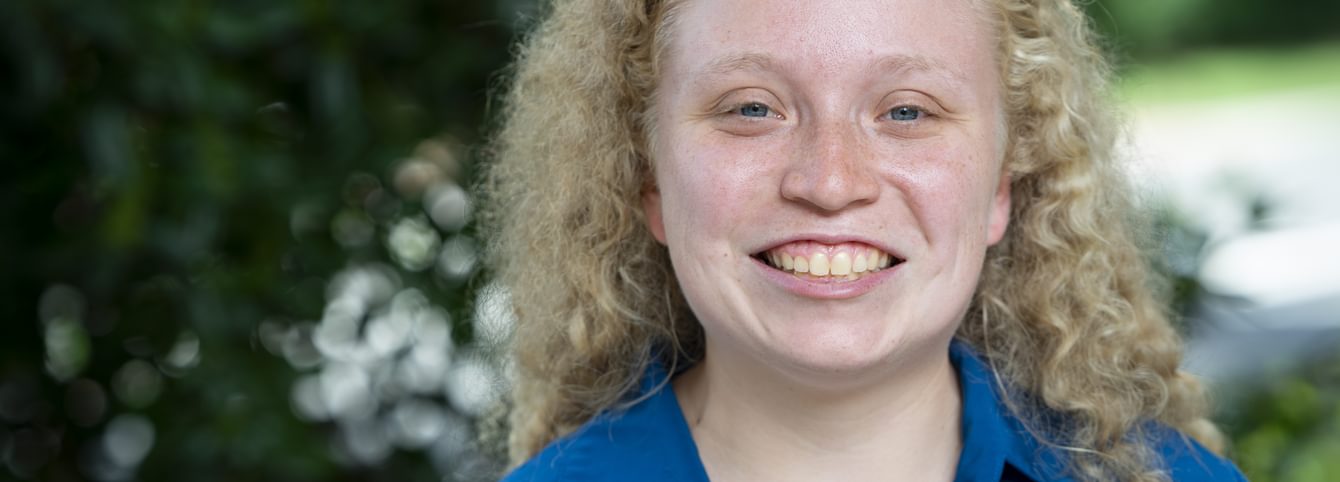Abigail Gillespie
Abigail Gillespie participated in the 2023 CLS Swahili Program hosted by MSTCDC in Arusha, Tanzania. Abigail is a graduate of University of North Carolina at Chapel Hill with a Bachelor of Art in Biology and English and Comparative Literature with a minor in African, African American, and Diaspora Studies. Abigail is currently serving the City of Marion, North Carolina, as an AmeriCorps member in the UNC School of Government. She plans to use her Swahili language skills in her career as she seeks to contribute to more impactful health policies and improve the implementation of health programs.
Getting to Know Abby
I grew up in Lake Waynoka, Ohio and went to college at the University of North Carolina (UNC). I served as the Vice President of Programming for the Carolina Union Activities Board, worked as an Oral History Transcriber for the Southern Oral History Project, and was involved in Out in STEM. Additionally, I wrote cases for the Bioethics Society of UNC and conducted research in the Medical Humanities HHIVE Lab within the English and Comparative Literature Department. Some interesting facts about me: I have a knack for finding four-leaf clovers, a talent I attribute to my attention to detail, and I have a particular love for gingko trees and guacamole. I come from a family of former archaeologists, and I have three younger siblings.
Why Swahili?
I became interested in learning Kiswahili after Dr. Raphael Birya visited a class and spoke to students about African language classes he teaches at UNC. I began learning Kiswahili during my second year, and I undertook an independent project focused on a coronavirus related visual art movement in Kenya and its role in combating the disease. This experience prompted me to take more classes with Dr. Birya throughout my third year of college. I applied for CLS to deepen my understanding of Tanzanian culture and the Kiswahili language.
A Favorite Phrase in Swahili
During my time learning Kiswahili, my cohort and I discovered that “shagalabagala” quickly became a favorite phrase. This term, which is often used when there is chaos or disorganization, encapsulated the spontaneous and sometimes chaotic nature of immersing ourselves in a new culture. We found it amusing and endearing, as it captured the unpredictability so common when learning a new language.
Why Should Others Learn Swahili?
Kiswahili might seem challenging to learn as a native English speaker because it is a Bantu language rather than a Romance language, but don’t let that intimidate you! It’s actually quite approachable since it uses the same alphabet as English, though it generally excludes the letters “q” and “x.” The pronunciation in Kiswahili is consistent with its spelling, which makes it easier to learn compared to other languages worldwide. Kiswahili relies on adding prefixes and suffixes to root words, which simplifies the learning process. If you’re worried that it might be too difficult, rest assured that it’s very manageable. People are incredibly friendly, and I never felt embarrassed about making mistakes —even outside of the classroom, and believe me, I made plenty!
Shared Family Backgrounds
One day on the bus, I struck up a conversation with the person sitting next to me and learned his name to be “Shambani,” which means farm or countryside in Kiswahili. Being already familiar with the meaning of the name, I asked him if the name was connected to his family. He shared that he grew up on a farm raising livestock. I mentioned that my grandparents also raise sheep in Ohio, which sparked a fascinating discussion about how, despite our differences, our family backgrounds were surprisingly similar. To this day, the memory is a heartwarming reminder of the common threads that connect people across cultures and languages.
Storytelling
Learning Kiswahili in Arusha, Tanzania, was profoundly influenced by my Appalachian background, as it helped me find commonality with people while learning the language and getting to know people. My Appalachian upbringing taught me the importance of storytelling, for instance, and as part of my final project, I talked with people about the history of art at MS-TCDC, where we took classes.
Words of Advice
While you’re at your host site, I recommend trying to connect with those around you, including your host family, fellow cohort members, teachers, and community members. Building these relationships will not only enrich your language learning but also make the experience more enjoyable and fulfilling. Approach new activities, places, and foods with an open mind and curiosity. And remember to be patient with yourself —everyone progresses at their own pace and that’s perfectly normal.
Alumni Profiles

Swahili 2023
Arusha, Tanzania
Posted Date
September 30, 2024


